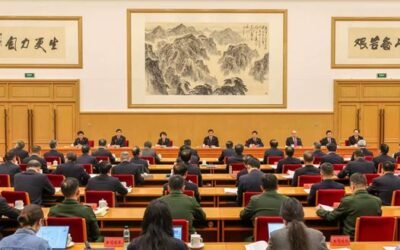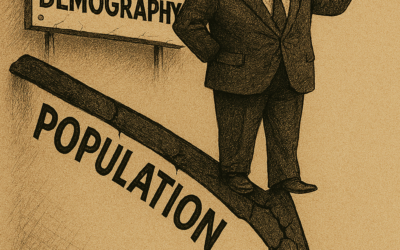Once again, Xi Jinping and the CCP have no patience with those who claim China’s economy and its proliferation of millionaires are not Marxist.
by Hu Zimo

One of the dearest themes for CCP ideologists is that China’s approach to the economy and capitalism is compatible with Orthodox Marxism. Xi Jinping has no patience with those who deny that China’s economic system, rich in millionaires as it is, aligns with Marx’s “scientific socialism.” Xi insists on Marx’s distinction between a “socialist” and a subsequent “communist” phase of societal evolution. While there will be no private property in the communist phase, we are, and will remain for decades, in the time of socialism, where personal ownership persists. Millionaires, Xi argues, are also compatible with socialism, provided that they have no political power, obey the Communist Party, and may lose their position and properties overnight if the Party so decides.
He Yiting, one of the key Party ideologists who serves as the Chairman of the China Reform Forum and is the former Executive Vice President of the Party School of the Central Committee of the CCP, reiterated these points in the May 15 issue of “China Discipline Inspection and Supervision News,” a publication that Party cadres are supposed to read. He particularly criticized the Western theory that Marxism does not guarantee prosperity.
On the contrary, He wrote, the CCP is a Marxist organization focused on the welfare of the Chinese populace and the revitalization of the nation. The CCP, he said, has tirelessly pursued the goal of shared prosperity throughout its century-long journey. Recently, He noted, Xi Jinping gave a significant speech at a symposium discussing economic and social progress in various provinces, regions, and cities during the 15th Five-Year Plan period. Xi highlighted that Chinese modernization embodies Marxist ideals aimed at achieving common prosperity for everyone.
He also noted that the CCP’s Central Committee has repeatedly emphasized the concept of “common prosperity.” Xi Jinping has also discussed this theme since the 18th National Congress of the CCP.
Theoretically, He stated, the basic principles of scientific socialism require a Marxist party to strive unremittingly for common prosperity. Scientific socialism is a vital aspect of Marxism, developed by the founders of Marxism to attain human freedom and liberation while exploring the ideal society for humanity and the means to achieve it. In a sense, He said, Marxism is a theory totally focused on human common prosperity.

He argued that in world history, Western countries, relying on their capital, technology, and military advantages, were the first to achieve modernization through colonial expansion abroad and capital exploitation at home. However, he insisted that the Western path to modernization is fundamentally centered on capital and serves the interests of a select few, inevitably leading to a significant gap between the rich and the poor and polarization. This represents the greatest drawback of Western modernization.
On the contrary, He believes that Marx and Engels, grounded in the law of the contradiction between productive forces and the relations of production, profoundly revealed capitalism’s exploitative nature, extensively analyzed the inherent problems of capitalist modernization, and concluded scientifically that capitalism would inevitably perish while socialism would triumph.
He concluded that because it is grounded in Orthodox Marxism as much as in Chinese culture, Xi Jinping’s vision of economy and progress offers a perspective distinct from Western modernization, thereby creating a new socialist form of human society.

Uses a pseudonym for security reasons.



